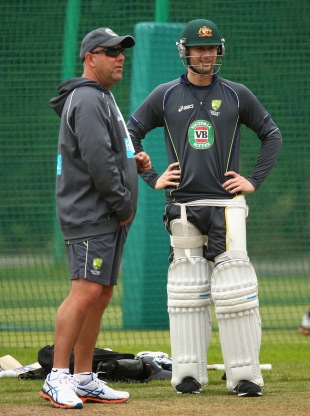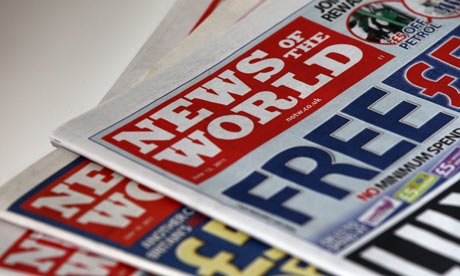The absence of any cricketers from the BBC's annual awards bash is another stark warning of the invisibility of the sport in the British mainstream
 Stuart Broad and Joe Root played key roles in the Ashes win, but neither man made the BBC Sports Personality shortlist © Getty Images
Stuart Broad and Joe Root played key roles in the Ashes win, but neither man made the BBC Sports Personality shortlist © Getty ImagesThere are some things - good teeth, a parachute, a car that starts in wet weather - that you appreciate more in their absence.
So it was when the contenders were announced for the BBC's Sports Personality of the Year award. In a year when England have won the Ashes, when Joe Root has been rated - albeit briefly - the best Test batsman in the world and when Stuart Broad has bowled out Australia in a session, there was no room for a cricketer in the 12-strong list.
That is not to denigrate the merits of each contender or accept the somewhat self-congratulatory worth of the award. But there was a time when Ashes success warranted open-top bus rides through Trafalgar Square and MBEs all round. There was a time when cricket seemed to matter more.
But that was when cricket was broadcast on free-to-air television. And, whatever the many merits of Sky's coverage of England cricket over the last decade or so, it is hard to avoid the conclusion that the game, starved of the oxygen of publicity in the UK, is diminishing in relevance by the year.
The broadcast deal is not cricket's only issue. Many school playing fields are long gone and cricket, with its demand for time and facilities, cannot reasonably be expected to fit into many teachers' timetables. The world has changed and a game that lasts either a full afternoon or five days may have lost its appeal to a quicker, more impatient world.
When Warwickshire first won the County Championship, a huge crowd greeted their return to New Street Station; if they win it next year, the local paper will pick up a short report paid for by the ECB and find a column inside the paper for it. The warning signs are everywhere.
Which is why T20 cricket - and televised free-to-air T20 cricket - is so vital. It is the vehicle by which the game can reconnect and inspire another generation of players and supporters. The hugely encouraging spectator numbers in 2015, spectator numbers that owe a great deal to the marketing nous of some counties, shows there is hope and potential. It remains a great game. We just need to expose more people to it.
It seems the penny has dropped. While nothing is yet resolved, it does seem that some key figures at the ECB have accepted the counties' argument that free-to-air coverage - either on television or on-line - has a part to play in the next television deal.
They had hoped that a new, city-based T20 league would enable them to squeeze enough money out of the next broadcast deal to make the problem go away for a while. But the counties saw, to their credit, that this would have been a short-term solution. They saw that all the redeveloped stadiums in the land and a bank account boasting reserves of £80m or more (as the ECB have) was no use if those stadiums were rarely full.
They saw, unlike the previous regime at the ECB, that money does not make everything alright. That not everything of value can be packaged and sold. That they exist to nurture and develop the sport and the money they make is a valuable tool to that end, not the end in itself.
Cricket Australia have already journeyed that way. They took a hit on the Big Bash broadcasting deal, realising that it was more important for the sport to reach a mass audience on free-to-air TV rather than earn short-term riches on a subscription panel. They have pointed the way for the ECB.
It currently seems likely (it could change) that, between 2017 and 2019 at least, the English domestic T20 tournament will be played in two divisions with broadcasters focussing almost exclusively on the top division. Many of the counties hope that format will remain long after the new broadcast deals begin in 2020; some at Lord's hope it will be a Trojan horse for an eight- or nine-team event. If that latter argument wins in an era of subscription-only coverage, the game will become invisible across vast tracts of the country. It will retract yet further.
That would be a missed opportunity. For there is, right now, much to like about English cricket. While football - with its spoilt-brat millionaire heroes - has lost touch with the man in the street, cricketers have re-engaged. They play with a smile, they stop for autographs and photos. They remind us that it is perfectly possible to be hugely talented, successful and likeable.
The national team play exciting, joyful cricket. They have, in Jos Buttler, a man who can produce the sort of innings we used to see only when the finest Caribbean cricketers played the county game. They have, in Ben Stokes, an allrounder to make football-loving kids want to pick up a bat and ball; a man in Joe Root who might be the finest batsman in the world; a leader in Charlotte Edwards who has remained at the top of her sport throughout her career and done a great deal to further her sport. And, at a time when a few shrill voices would have us believe that communities of different faiths and cultures cannot coexist, a man in Moeen Aliwho gently shows us otherwise. There is much to celebrate in cricket.
But who will know unless they have a cricket-loving parent, they attend a private school or they come from an Asian community where the game remains relevant? How will the sport reach a new audience? How, in the long-term, will the value of the broadcast deals be maintained if the market diminishes? Cricket in England has become a niche and the absence of a cricketer in the Sports Personality of the Year list is another sign.
The money earned over the last few years has enabled the ECB to do many admirable things. They have led the way in the funding of disability cricket, the development of women's cricket and the improvement of facilities from the grassroots to the international game. All of this would have been desperately difficult without Sky's investment.
Nor is the past is not quite as marvellous as is remembered. Channel 4's coverage of two Ashes series - now talked about as if it were a golden age - was interrupted, in all, by 33 hours' worth of horse racing. Channel 4 also persuaded the ECB to start Tests at 10.30am one summer in order not to disrupt the evening scheduling of The Simpsons and Hollyoaks.
Equally, the BBC coverage of "Botham's Ashes" of 1981 was interrupted by programmes such as Playschool, Chock-a-block and The Skill of Lip-Reading while, for several years, their Sunday League coverage consisted of a single camera. Still, for many of us, it was our gateway drug to this great game. And yes, it seems to fair to reflect whether the BBC, for all the excellence of its radio coverage, for all its good intentions and the fine things it stands for, is currently keeping its side of the bargain when it comes to broadcasting sport.
Since 2006, Sky, with their multiple cameras, has taken cricket coverage to a new level. By broadcasting all England games home and away - something of which we could not dream 25 years ago - guaranteeing weeks of county coverage each season, and their willingness (a willingness we often take for granted in the UK but which is rare elsewhere) to ask the hard questions in interviews and commentary, they probably offer the best service cricket lovers have ever had.
Or at least those who can afford it. And there is the rub, because whatever the virtue of the Sky deal for the ECB's finances and whatever the virtues of their coverage, the fact is that vast sections of the country have no access to live cricket on television. In a nation where an uncomfortable number have the need of foodbanks, it is grotesque to think most could afford subscription TV if they only cared enough.
And whatever the benefits of sending coaches into primary schools - and Sky's money has helped fund Chance to Shine - it is hard to believe that 1,000 hours of helping kids hit tennis balls off cones will ever replace one hour of inspiration provided by watching the likes of Ian Botham, Andrew Flintoff or Ben Stokes lead England to the Ashes. Nothing can replace the oxygen of publicity. The benefits of the Sky money have long since been counteracted by the negatives in the reduced audience.
The water has been rising round our feet for some time. We have seen reports of falling participation numbers, we have seen England teams disproportionately reliant upon cricketers who learned the game either abroad or in public schools, and we have seen newspapers that used to take pride in their county cricket coverage abandon it almost completely. We have seen poorly attended international games - only the Ashes seems to be immune from the decline - The absence of a cricketer from the Sport's Personality of the Year list - whatever the imperfections of that contest - is the latest symbol of the decline. We're fools to ignore it.
This is not meant to sound pessimistic. Were there a fire in the building, one could remain optimistic of escape while still sounding the alarm. We have a great game to offer. But, as Bob Dylan put it, let us not talk falsely now, for the hour is getting late.


